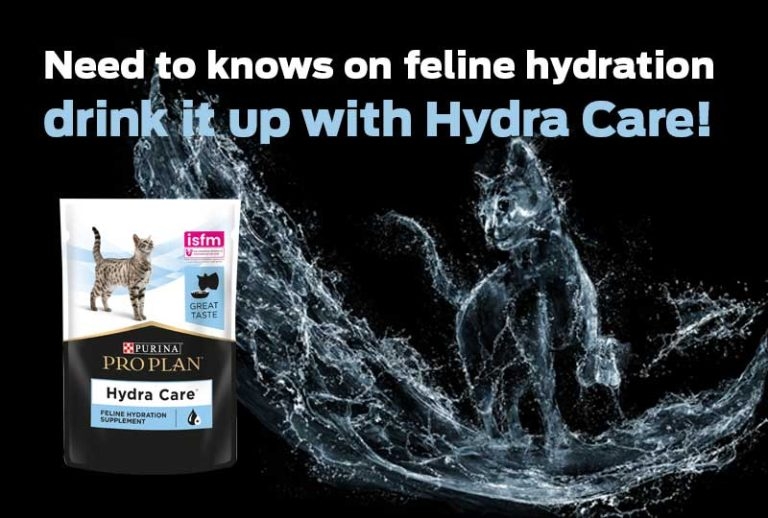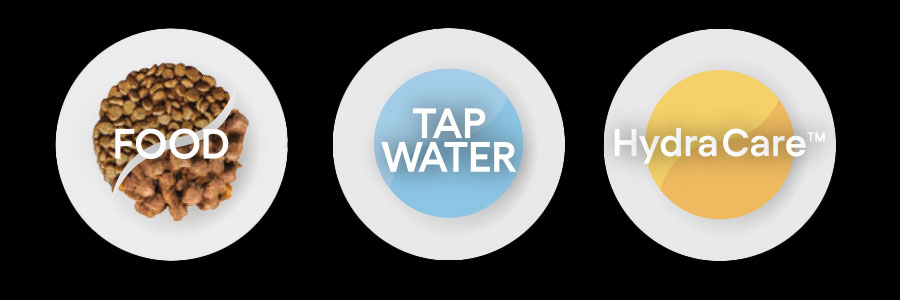31 March 2025

We all know how important water intake is in veterinary medicine. If there is a water deficiency, you will see the negative impact much sooner than with any other nutrient. As mammals’ bodies contain around 70% water, a loss of just 10% will have a significant impact and can lead to serious illness.
Domesticated cats evolved from desert dwellers and so tend to respond to eating diets that are low in moisture content by increasing their urine concentration, rather than drinking more.
While cats on dry diets do drink more water than those on wet diets, the amount doesn’t equal the amount of water that would be contained in a wet diet with the same nutrient composition.
When cats become dehydrated, they can be really slow to initiate drinking, and that’s especially the case with older cats due to:
And cats generally experience unique difficulties:

As well as age, a cat’s water requirement depends on their physical activity, the ambient temperature and type of diet. Also, in some medical conditions, including constipation or renal and urinary disease, dehydration is a risk factor, and, therefore, it would be beneficial to focus on maintaining hydration.
One answer could be to offer cats PRO PLAN® HC Hydra Care Supplement.
Offer Hydra Care in a separate third bowl alongside food and water bowls.

Hydra Care is a nutrient enriched water containing osmolytes, which are compounds that help the body retain water. These osmolytes, including amino acids from whey protein, help with fluid balance and cell volume, promoting hydration at a cellular level.

For more top tips on how to encourage cats to drink more fluid, listen to Laura Hughes, Purina’s nurse development manager, explain her strategies.
Check out Laura’s podcast below
Maintaining hydration is important in long-term care in a variety of conditions, including chronic kidney disease (CKD). If you would like to find out more, you can access this Purina Masterclass on providing ongoing care in feline CKD through an individualised approach to nursing and nutritional support.
Speakers are Laura Jones, a senior medicine nurse and veterinary technician specialist in small animal internal medicine, and Libby Sheridan, PURINA® scientific affairs manager for the UK and Ireland. The webinar provides an hour of CPD.
Want to know more and gain access to studies, CPD and events? Vet Centre is your one stop shop for nutrition information. Visit https://vetcentre.purina.co.uk/
Obtain a digital token for your registration by emailing [email protected].
*Compared to cats consuming only water in addition to dry feeding. Cats must consume at least 25ml/kg of bodyweight daily for benefit. Purina Internal Study, 2020
®Reg Trademark of Société des Produits Nestlé S.A.